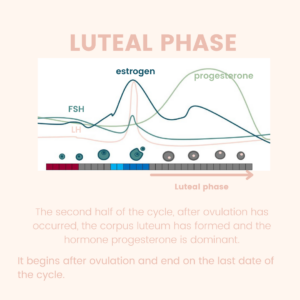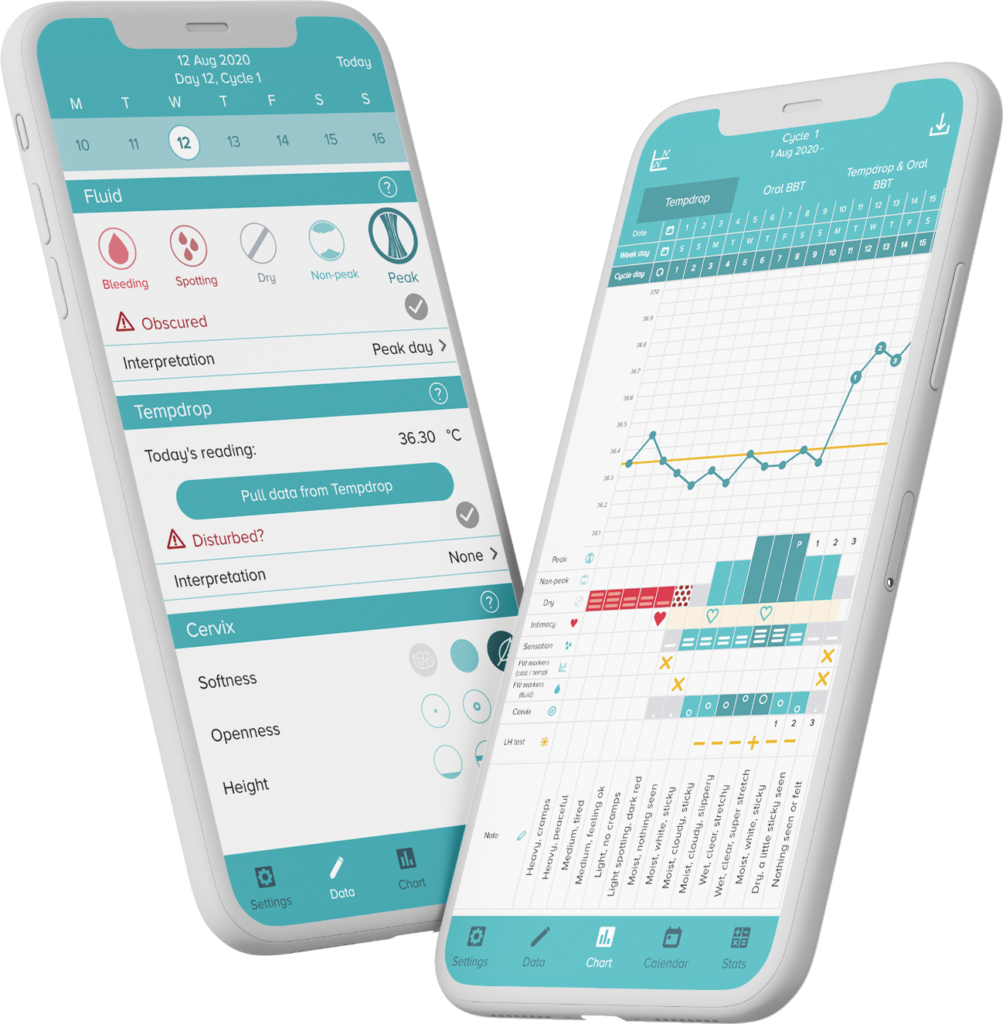A short luteal phase, or luteal phase deficiency remains one of the most common reasons for infertility in couples.
The good news is that charting your cycles with fertility awareness can help determine the duration of your luteal phase. Even better, it’s one of the easier fertility issues to address- yay.
The luteal phase is the second half of your cycle, starting the day after ovulation has taken place and continues until the start of a new cycle. During this phase progesterone is your dominant hormone, and adequate levels of progesterone are essential for pregnancy. Progesterone prepares the uterus for pregnancy and transforms the endometrium (uterine lining) by thickening it to receive an embryo.

During this phase, your egg (hopefully fertilised) makes its way on a journey that takes anywhere up to 9 days to travel the distance to the endometrium where it will burrow into the lining and start to develop.
So, if your luteal phase is on the shorter end, there may simply not be enough time for the egg to make its whole journey and implant into your uterus.
Luteal phase defects are estimated to affect 34% of women with “unexplained infertility”, and up to 63% of women with recurrent miscarriages.
So how do you know if your luteal phase could be deficient?
A healthy luteal phase is one that is more than 9 days in length (based on the FEMM fertility awareness standards) however a minimum luteal phase of 11 days is ideal. When charting your cycles, if you can correctly identify where ovulation has occurred, before counting forward until the beginning of your next period this will give you your luteal phase length.
Other signs, including spotting before your period starts, low basal body temperatures, patches of cervical mucus throughout your luteal phase, and PMS symptoms, can all be indicators that progesterone is lower in your luteal phase.
So if you are experiencing a shorter luteal phase and/or any of the other signs, it would warrant some investigation by your health professional to have your levels tested.
Check out this post on Instagram, where I talk about where in your cycle progesterone should be tested for the most accurate results.
Curious to learn more about your cycles, fertility and determine if your luteal phase could be standing in the way of you becoming pregnant? check out my new self paced program Transform Your Cycle here, and take back the control of your journey.




